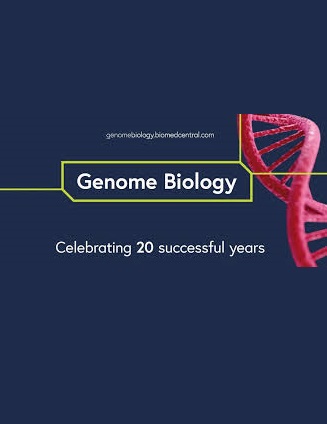染色体数目减少对分裂酵母有丝分裂和减数分裂稳定性的影响
IF 10.1
1区 生物学
Q1 BIOTECHNOLOGY & APPLIED MICROBIOLOGY
引用次数: 0
摘要
在真核生物中,遗传信息储存在多条染色体上,并通过细胞分裂传递给后代。染色体数目如何影响细胞分裂和染色体分离尚不清楚。在本研究中,我们使用含有一条或两条染色体的人工染色体融合分裂酵母细胞作为模型来研究染色体数目减少对有丝分裂和减数分裂的影响。在有丝分裂中,染色体数目减少,特别是完全融合到一条染色体上,以依赖于纺锤体组装检查点的方式延长有丝分裂持续时间,并提高纺锤体组装检查点缺陷细胞的染色体分离准确性。相比之下,在减数分裂中,染色体数目的减少损害了前期振荡核运动,延长了减数分裂I的持续时间,缩短了减数分裂II的持续时间,并严重损害了减数分裂I的染色体分离。我们的工作揭示了染色体数量减少对有丝分裂和减数分裂稳定性的不同影响,并为生物体如何在进化中选择适当数量的染色体提供了见解。本文章由计算机程序翻译,如有差异,请以英文原文为准。
Effects of chromosome number reduction on mitotic and meiotic stability in fission yeast
Genetic information is stored on multiple chromosomes in eukaryotic organisms and is passed on to offspring through cell division. How chromosome number influences cell division and chromosome segregation is not yet understood. In this study, we use artificial chromosome-fusion fission yeast cells, which contain one or two chromosomes, as models to investigate the effects of a reduced chromosome number on mitosis and meiosis. In mitosis, chromosome number reduction, particularly full fusion into one chromosome, prolongs mitotic duration in a manner dependent on the spindle assembly checkpoint and improves chromosome segregation accuracy in spindle assembly checkpoint-deficient cells. By contrast, in meiosis, chromosome number reduction impairs prophase oscillatory nuclear movement, prolongs meiosis I duration but shortens meiosis II duration, and severely compromises meiosis I chromosome segregation. Our work uncovers different effects of reduced chromosome number on mitotic and meiotic stability and offers insights into how organisms may select the appropriate number of chromosomes in evolution.
求助全文
通过发布文献求助,成功后即可免费获取论文全文。
去求助
来源期刊

Genome Biology
Biochemistry, Genetics and Molecular Biology-Genetics
CiteScore
21.00
自引率
3.30%
发文量
241
审稿时长
2 months
期刊介绍:
Genome Biology stands as a premier platform for exceptional research across all domains of biology and biomedicine, explored through a genomic and post-genomic lens.
With an impressive impact factor of 12.3 (2022),* the journal secures its position as the 3rd-ranked research journal in the Genetics and Heredity category and the 2nd-ranked research journal in the Biotechnology and Applied Microbiology category by Thomson Reuters. Notably, Genome Biology holds the distinction of being the highest-ranked open-access journal in this category.
Our dedicated team of highly trained in-house Editors collaborates closely with our esteemed Editorial Board of international experts, ensuring the journal remains on the forefront of scientific advances and community standards. Regular engagement with researchers at conferences and institute visits underscores our commitment to staying abreast of the latest developments in the field.
 求助内容:
求助内容: 应助结果提醒方式:
应助结果提醒方式:


